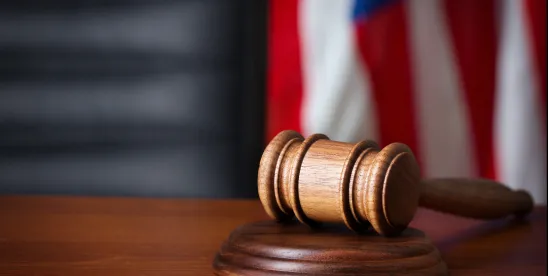The Rules Governing the Courts of the State of New Jersey were amended effective September 1, 2024, after being approved by the Supreme Court of New Jersey earlier this year.
Several of the amendments will be of particular interest to civil litigators.
Rule 1:5-2 – Manner of Service
Rule 1:5-2, which governs the service of papers upon attorneys of record, may now be made by email “to the email addresses listed on an approved electronic court system pursuant to Rule 1:32-2A(a).” While many practitioners have likely followed this practice in their cases and agreed amongst themselves to accept service of routine documents such as discovery requests and responses via email, the amendment to Rule 1:5-2 makes clear that no such agreement is necessary. As the Supreme Court Civil Practice Committee observed in its January 2024 report (the “Civil Practice Committee Report”), “[s]ince the COVID-19 pandemic, practitioners reported having experienced an increase in electronic service of motions and discovery demands, generating the need for a rule amendment to formalize the practice.” This new service-by-email rule applies to all papers referred to in Rule 1:5-1, namely “orders, judgments, pleadings subsequent to the original complaint, written motions (not made ex parte), briefs, appendices, petitions and other papers except a judgment signed by the clerk.”
Rule 4:14-2(c) – Corporate Representative Depositions
The amendment to Rule 4:14-2(c) provides that with respect to the depositions of corporate representatives, “before or promptly after the notice or subpoena is served,” the parties and any non-party organization must confer in good faith about the deposition topics. Importantly, the amended rule imposes new language that must be included in a subpoena to a non-party organization (“A subpoena must advise a nonparty organization of its duty to confer with all parties and to designate each person who will testify.”). The Civil Practice Committee noted that the amendments were modeled after Federal Rule of Civil Procedure 30(b)(6), with the aim of curtailing problems that occur when an incorrect individual appears for a deposition as a corporate designee without relevant information. Indeed, it is the goal of the meet-and-confer requirement to avoid gamesmanship.
Rule 4:22-1 – Requests for Admission
The rule regarding requests for admission has been amended to clarify that matters to be admitted include those within the proper scope of discovery pursuant to Rule 4:10-2, “relating to facts, the application of law to fact, or opinions about either.” The genuineness of documents remains a proper subject of a request for admission. The new language in Rule 4:22-1 tracks the language in the federal analogue, Federal Rule of Civil Procedure 36(a)(1), with the Civil Practice Committee noting that adding the term “opinion” to the existing Rule “may reduce wasted effort on uncontested issues.”
* * *
These and all of the other recent amendments are already incorporated into the complete text of the Rules available online.



 />i
/>i

